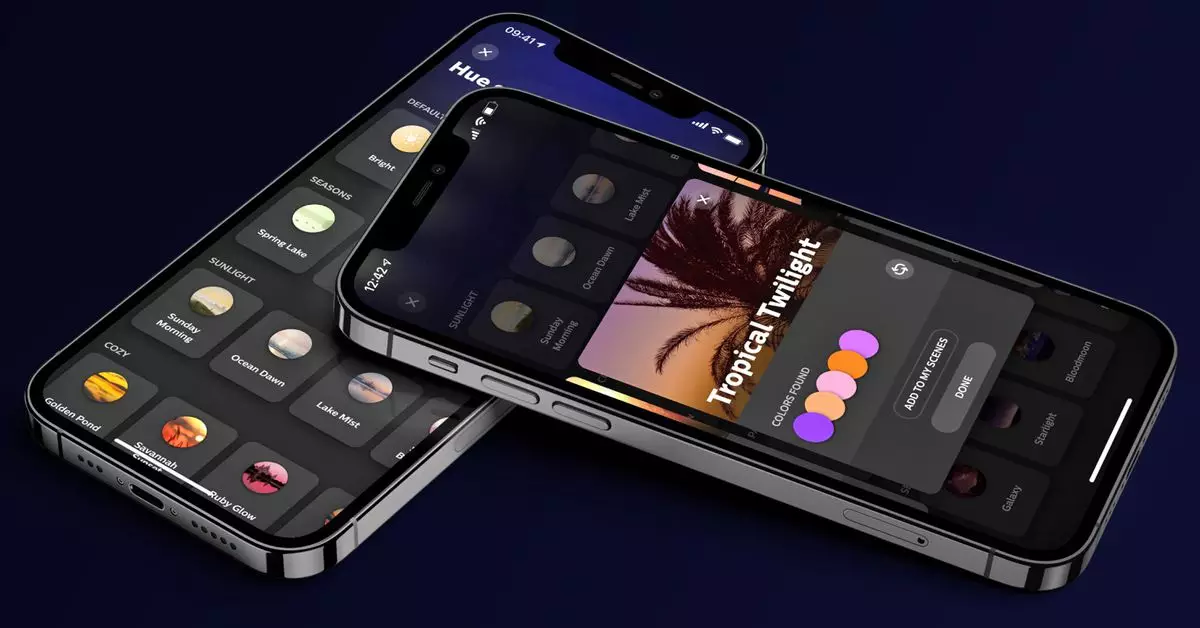In a landmark announcement, Philips Hue revealed its plans to introduce an innovative AI-powered lighting assistant that aims to redefine personal lighting experiences. This state-of-the-art feature, set to be available in early 2025, enables users to effortlessly craft customized lighting scenes that cater to individual preferences based on occasions, moods, or even personal style. By simply entering commands or speaking through the Hue app, users can generate an impressive array of lighting arrangements with mere words, turning their home environments into tailored visual tapestries.
Personalization at Your Fingertips
The generative AI lighting assistant is not just a simple tool; it serves as a creative partner in designing the perfect atmosphere. For example, a user might type, “Generate a scene for a cozy movie night,” and the assistant will promptly deliver tailored recommendations from its expansive gallery, or it may even concoct a unique scene from scratch that aligns with the user’s request. This revolutionary approach to lighting brings an unprecedented level of personalization, allowing individuals to engage with technology in ways that feel intuitive yet sophisticated.
Beyond mere creation, the AI assistant offers robust functionalities for adjusting existing Philips Hue settings, encompassing brightness and color adjustments. This added layer of control means that users aren’t limited to choosing from preset scenes; they can dynamically adapt their environments in real time. Such advancements signify Philips Hue’s commitment to visual dynamism, offering an engagement that extends into everyday routines.
The Competitive Landscape
While Philips Hue is making noteworthy strides in AI lighting, it is not entirely alone in this burgeoning space. Competitors like Govee and Nanoleaf have already introduced similar AI functionalities, demonstrating that the market for intelligent lighting solutions is heating up. Govee’s AI Lighting Bot and Nanoleaf’s “Magic Scenes” feature provide comparable experiences, regardless of whether via voice or typed commands. Philips Hue’s multifaceted approach, however, seeks to surpass these offerings by making the technology more universally accessible—compatible with all Philips Hue lights and designed with a user-centric focus.
Philips Hue’s recent announcements highlight not only the AI assistant but also enhancements to its ecosystem. The compatibility of the Hue Sync TV app with LG televisions adds another layer of synergy, enabling users to synchronize their lighting with on-screen action seamlessly. Furthermore, the introduction of the Philips Hue Datura ceiling light introduces versatile customization options that further expand the brand’s product range, catering to diverse needs and preferences.
Philips Hue’s entry into the realm of AI-powered lighting represents a significant shift towards smarter, more personalized home environments. As the rollout approaches, consumers can anticipate a pioneering experience marked by intuitive interaction and limitless creativity. The integration of AI within everyday household solutions not only enriches aesthetic experiences but also reflects the evolving intersection of technology and lifestyle, establishing a new standard for home ambiance.

